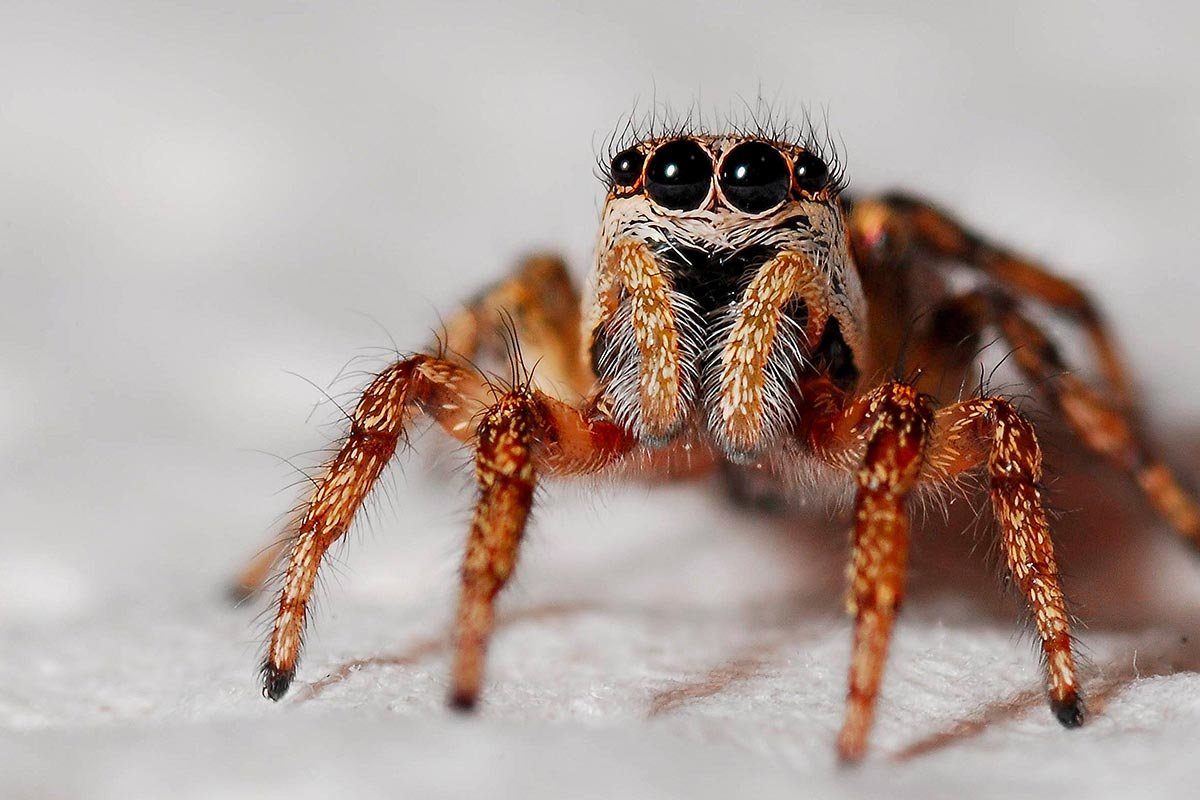Entomophobics are those who are afraid of insects. Extreme anxiety or terror may be experienced by someone who has entomophobia when they see or think about insects. They could refrain from going for walks or exercises outside and might avoid going to outdoor activities. To decrease their odds of witnessing insects, some people might forgo leaving their homes.
What are other names for entomophobia?
The fear for insects is referred to by numerous names. You may hear this phobia referred to as:
- Acarophobia.
- Insectophobia.
How common is entomophobia?

What does a person with entomophobia fear?
Entomophobia is the fear of insects.
- Having an insect, such as a bee, wasp, or tick, sting or bite you.
- Encountering insects, either outside or inside.
- Catching a sickness from a fly or mosquito, for example.
- Either having an inside or external bug infestation.
- Seeing bug imagery in media like TV episodes, movies, books, or the internet.
Who is at risk for entomophobia?
If you already have one of the following conditions, you are more prone to acquire entomophobia or another sort of specialized phobia disorder:
- One more phobia.
- Anxiety condition.
- Anxiety disorder
- Drug abuse disorder.
What other phobias are associated with entomophobia?
Other phobias linked to entomophobia include:
- Apiphobia or melissaphobia (fear of bees).
- Arachnophobia (fear of spiders).
- Helminthrophobia, scoleciphobia or vermiphobia (fear of worms).
- Katsaridaphobia (fear of roaches).
- Myrmecophobia (fear of ants).
- Pteronarcophobia (fear of flies).
- Spheksophobia (fear of wasps).

What are the causes of entomophobia?
Entomophobia may have several root causes, including:
- Past traumatic events: Individuals who have endured a terrible event involving insects may become entomophobic. For instance, a severe allergic reaction to a bee sting may have happened to you or someone you know.
- Environmental irritants: Pollen, mold, or domestic allergens can make some people's skin irritable. Someone may accuse insects if their skin continues to be affected.
- Family history: If you have a parent or close family who suffers from an anxiety disorder or phobia, your risk of developing entomophobia rises. If you have a certain gene mutation, you might be more worried than most people (change).
- Modeling: Being exposed to an entomophobic individual or hearing about an entomophobic person's fear of insects can make you get the same phobia.
What are entomophobia triggers?
Entomophobia can be triggered by anything linked to insects. Observing or imagining insects is one of the entomophobia triggers.
- In public areas like playgrounds, parks, or sidewalks.
- Within your or another person's home.
- In movies, literature, television shows, or online.
- As you make your way outside to your automobile.
What are entomophobia symptoms?
The signs and symptoms of entomophobia might be moderate or severe. Extreme anxiety when you think about or encounter insects is the most prevalent symptom. Other emotional signs comprise:
- Excessive consideration of insect avoidance strategies.
- Aversion to and fear of environments where you might encounter insects.
- Physical symptoms like a burning or itching sensation all over the body are also possible. Additional signs include:
- Chills.
- Feeling lightheaded and dizzy.
- Excessive perspiration (hyperhidrosis).
- Palpitations in the heart
- Nausea.
- Breathing difficulty (dyspnea).
- Shaking or trembling
- Indigestion or an upset stomach (dyspepsia).
How is entomophobia diagnosed?
If entomophobia interferes with your daily life, your doctor could advise that you consult a psychologist or other mental health specialist. Entomophobia is not classified as a phobic disorder in the Diagnostic and Statistical Manual of Mental Disorders (DSM) published by the American Psychiatric Association. But after learning about your symptoms, a psychologist might make a diagnosis.
If you are afraid of insects in any of the following situations:
- occurs whenever you consider or encounter insects.
- causes you to avoid activities like going on a hike or to a park.
- prevents you from attending social gatherings.
- impedes your enjoyment of life.
- causes anxiety or terror symptoms that are out of proportion to the threat at hand.
at least six months long.
What are entomophobia treatments?
One of the main therapies for entomophobia is exposure therapy. A mental health expert exposes you to circumstances and images that can bring on your symptoms during exposure treatment. They eventually assist you in controlling your reaction. The majority of persons with specific phobias report feeling better after receiving this kind of psychotherapy (talk therapy).
In exposure therapy, your therapist assists you in:
- Learn how to relax and breathe properly before and during exposure.
- Discuss your aversion to insects.
- View insect images or movies.
- In a controlled environment, like your doctor's office, see live insects.
- Gradually go on to an environment where you might encounter insects, like a park or woodland.
What are other entomophobia solutions?
Additional methods for overcoming entomophobia include:
Cognitive behavioral therapy (CBT) can assist you in altering the way you perceive and respond to things and circumstances that cause symptoms. Many medical professionals combine CBT with exposure treatment.
Hypnotherapy: Practitioners can help you change how you perceive insects by using focused attention and guided relaxation techniques. On another hand,Hypnotherapy is another tool that providers may use to identify the root of your phobia of insects.
Medication: In some circumstances, entomophobia symptoms may be momentarily lessened by medications that treat the physical symptoms of anxiety. Additionally, antidepressants might lessen general anxiety.
Yoga and meditation: Practicing yoga on a daily basis will help you unwind and lower your tension. In order to reduce panic attacks, meditation can help you concentrate on your breathing and relax your body.
What are the complications of entomophobia?
Your daily existence may be greatly impacted by severe entomophobia. You might not want to take a stroll outside, meet up with friends in a park, or bring your children to a playground. Moreover, extreme anxiety can be brought on by simply imagining seeing an insect when you leave your house. You might opt to quit leaving your house altogether.
Entomophobics who experience panic episodes are not uncommon. Heart palpitations, noncardiac chest discomfort, and heart attack symptoms can result from these assaults. Panic disorder can be brought on by uncontrollable panic attacks and persistent worry.
When should I call the doctor?
Calling your healthcare practitioner is advised if you have:
- Fear strikes.
- Chronic anxiety that interferes with daily activities or sleep
What questions should I ask my doctor?
You may want to ask your healthcare provider:
- For how long will I need therapy?
- Should I look for signs of certain complications?
- what is the factor for this phobia?
- What is the most effective treatment for me?
How Can Online Therapy Help?
Online therapy can hep with you recognizing your symptoms,and having the comfort of doing therapy from your home,or anywhere in the world. Just likie face to face therapy,it has the same benefits and outcomes.
References
- Chandon KS, Abdijadid S. Specific Phobia. (https://www.ncbi.nlm.nih.gov/books/NBK499923/) [Updated 2021 May 15]. In: StatPearls [Internet]. Treasure Island (FL): StatPearls Publishing; 2021 Jan-. Accessed 3/22/2022.
- Eaton WW, Bienvenu OJ, Miloyan B. Specific phobias. (https://www.ncbi.nlm.nih.gov/pmc/articles/PMC7233312/) Lancet Psychiatry. 2018 Aug;5(8):678-686. Accessed 3/22/2022.
- Merck Manual (Consumer Version). Phobic Disorders (Phobias). (https://www.merckmanuals.com/home/quick-facts-mental-health-disorders/anxiety-and-stress-related-disorders/phobic-disorders-phobias) Accessed 3/22/2022.
- Merck Manual (Consumer Version). Specific Phobic Disorders. (https://www.merckmanuals.com/home/mental-health-disorders/anxiety-and-stress-related-disorders/specific-phobic-disorders) Accessed 3/22/2022.
- National Health Service (UK). Overview: Phobias. (https://www.nhs.uk/mental-health/conditions/phobias/overview/) Accessed 3/22/2022.
- National Institute of Mental Health. Specific Phobia. (https://www.nimh.nih.gov/health/statistics/specific-phobia) Accessed 3/22/2022.


